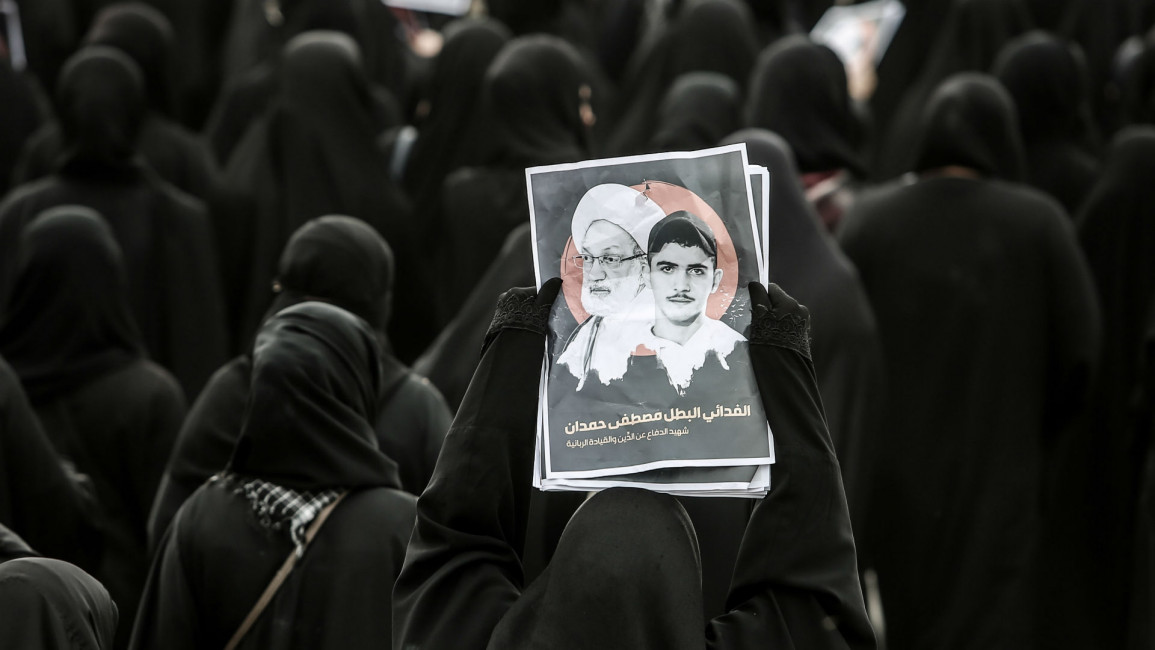Major opposition figures not on 'restored Bahraini citizenship list'
Opposition leader and the spiritual leader for Bahrain’s Shia majority community, Isa Qassim, as well as other world-renowned activist figures who were stripped of Bahraini citizenship for their in anti-government protests failed to show up on the list of more than 500 that had their nationality restored.
King Hamad ordered the citizenship of 551 Bahrainis reinstated last week, days after the UN expressed concern about the punishment.
King Hamad also requested authorities take into account "the nature of crimes committed", the Bahrain News Agency reported with the ministry ordered to examine their files and prepare lists of those to be freed.
Around 990 Bahrainis - mostly part of the Shia majority - have had their citizenship revoked since protests ignited against the Sunni ruling family in 2011.
A mass trial on Tuesday saw a Bahraini court revoke the citizenship of 138 people and jailed 139, who were convicted of belonging to a "terror" group with links to Iran's Revolutionary Guards.
It was the biggest loss of citizenship in Bahrain in one mass trial since 2012, according to the Bahrain Institute for Rights and Democracy.
“Since amendments to the anti-terror law were passed in 2014, the use of revocation of citizenship has increased dramatically, in many cases targeting journalists, human rights defenders and critics of the government,” BIRD’s director Sayed Ahmed al-Wadaei told Reuters on Sunday.
A judicial source said all the defendants are members of the Shia community in the Sunni-ruled Gulf state.
The mass sentencing was "the largest single incident" since the Bahraini government began revoking nationalities of opponents in 2012, said the opposition Bahrain Institute for Rights and Democracy.
Global rights group Amnesty International condemned the court decision to strip the convicts of their citizenship, saying "this amounts to mass arbitrary denaturalisation".
Bahrain's population is majority Shia Muslim, although unofficial estimates that are contested by the government.
Authorities have jailed dozens of high-profile activists and disbanded both religious and secular opposition groups since Shia-led protests demanding political change erupted in 2011.
They have stripped hundreds of those convicted of their citizenship, leaving many stateless.
Since then, authorities have outlawed the main Shia opposition group, Al-Wefaq, which held the largest bloc in parliament before 2011, and the main secular opposition group, Waad.
In January, Bahrain's Supreme Court, whose verdicts are final, upheld a life term for opposition leader Sheikh Ali Salman for allegedly spying for Gulf rival Qatar.
Salman, who headed the Al-Wefaq group, was convicted in November of "communicating with Qatari officials... to overthrow constitutional order", a ruling rights groups have called a travesty.
Salman's aides Ali al-Aswad and Hassan Sultan, who had been sentenced to life in absentia, also lost their right to appeal. Both men are former MPs and currently reside outside of Bahrain.
Qatar has repeatedly denied accusations of conspiring against Bahrain with Salman, as has Iran.
Human rights groups have frequently said cases against activists in Bahrain - men and women, religious and secular - fail to meet the basic standards of fair trials
Follow us on Twitter: @The_NewArab



